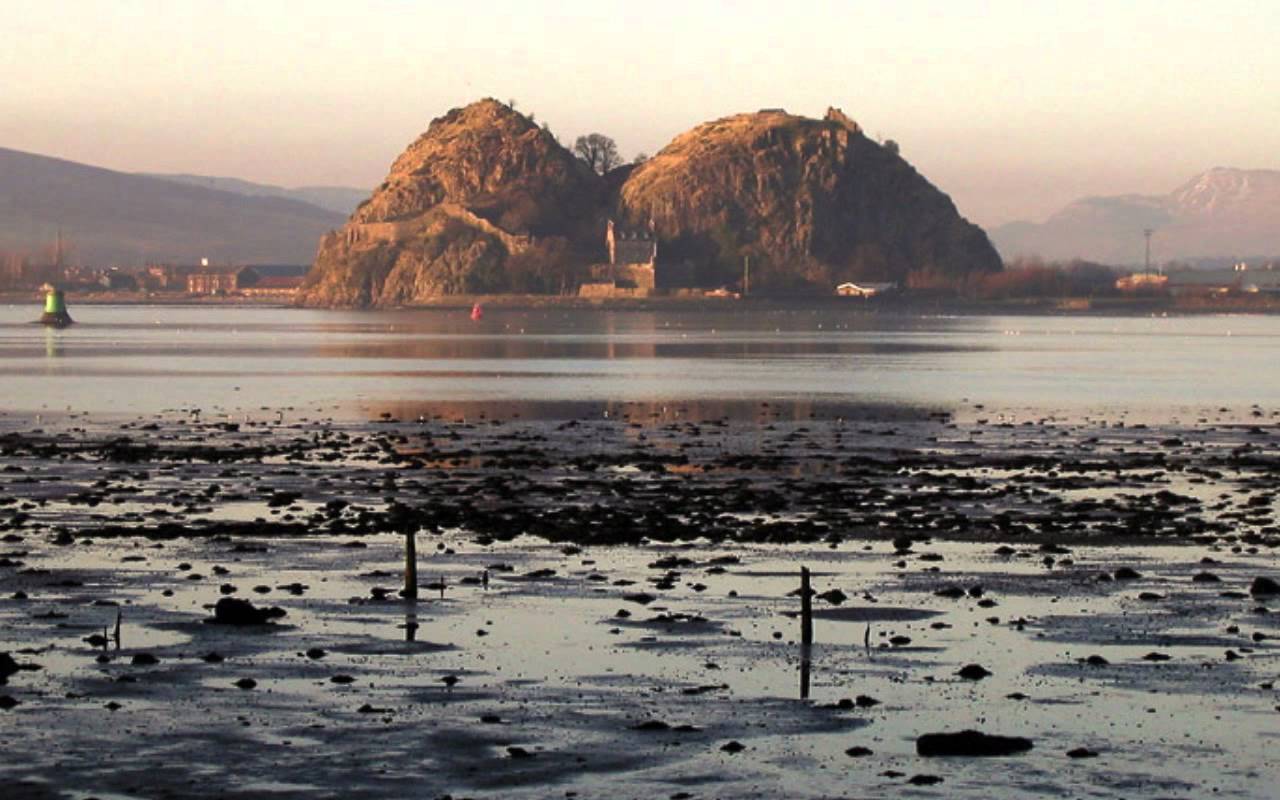A blog about the history and language of the medieval kingdom of Strathclyde/Cumbria
All Clud / Dumbarton Rock

All Clud / Dumbarton Rock
Saturday 21 May 2016
Chalk Beck NY331454
Chalk Beck NY331454 Shauk c.
1060, Schauk 1285. Schauke 1381, Shawke 1578, Tyauk 1289, Chawke al. Shawke 1578. Names with -l-
begin in 1619. The l is a hypercorrection, such as Falkirk for the correct
Fawkirk, after the vocalisation of l after a back vowel in the 16th Century.
Ekwall (Ekwall, 1960) suggests this is from a root *scawen, compare Welsh ysgawen "elder tree", presumably in an adjectival form ysgawog "abounding in elders". In Cornish *skewyek and Breton skaveg (Padel, 1985). Padel mentions the Cornish place-name Skewjack SW365245 , earlier Skewyek. Deshayes gives an example of the Breton name Squiviec in Mûr-de-Bretagne
Chalk Beck runs from Faulds Brow through
Chalkplains, Chalkbridge, Chalkside, past Chalk Lodge then to Chalkfoot near
Cumdivock before running into the River Wampool. There is no chalk in the area. The area has a
number of Cumbric names, though these may date from the 10th Century and Chalk
Beck could predate the Northumbrian occupation in the 7th Century.
The name clearly begins with a
palatalised sibilant /t͡ʃ-/ though it
may have been /ʃ- at one time from the earlier spellings. Ekwall's
suggestions relies on the fact that earlier Anglo-Saxon /k/ before a front vowel was palatalised and
assibilated, e.g. Church, cf Norse Kirkja, German Kirche, Dutch Kerk. It is
noted by Minkova (Minkova, 2013:87) that the process of palatalisation happened throughout
the Old English period and was complete by the end of that period (c. 1100).
She notes that the north was conservative and palatalisation was resisted
there, hence the names in Kirk- rather than church, and dialect words such as
kist for chest and sark for shirt. This resistance usually put down to Norse
influence but as Laker points out, the Britons had no palatal consonants either
and he finds evidence of resistance to palatalisation in Devon near the Cornish
border where there was no Norse influence (Laker, 2010).
Whether from Brittonic influence
or Norse, or the one reinforcing the other, in Cumberland and Scotland
palatalisation does not usually happen. It does happen in Northumberland
however, which was not occupied by the Norse. So, the palatalisation at the beginning of Chalk
beck is unsual and unexpected.
I had wondered whether it was
identical with the Savick Brook, Savoch c.
1200, Safok 1268, which Ekwall
considers a British river name (Ekwall, 1960). We would then need to explain the palatalisation of
the s- to /ʃ-/ and the vocalisation of /-v-/. Initial British s- usually becomes h- as in
Hafren from British Sabrina, in English Severn.
As for this root *√sab- , Rivet
and Smith discuss that it appears in Savernake in Wiltshire and a river near
Cork, in Old Irish, Sabrann and on
the Continent, Sambre in Belgium Sevre and Sevres in France and a Gaulish
graffito Ad Sabros. They wonder whether *√sab is a pre
Indo-European river name of unknown meaning.
Subscribe to:
Post Comments (Atom)
No comments:
Post a Comment